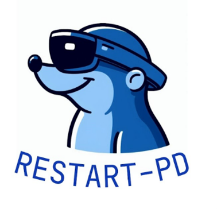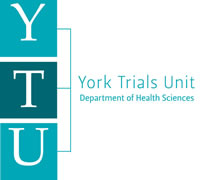Rehabilitation Exercise Study with Therapeutic Augmented Reality Treatment for patients with Parkinson's Disease: a randomised controlled trial of Reality DTx®
Background
Parkinson’s disease affects 145,000 people in the UK today. As the condition progresses, mobility and balance are affected, and the risk of falls increases. This reduces quality of life for People with Parkinson’s and their families.
Rehabilitation is helpful in slowing progression of the condition. But it works best when it is personalised, is sufficiently intense, and is performed in a familiar environment. However:
- Clinic-based therapies burden patients with travel costs and inconvenience,
- Appointments may not match medication timing, limiting their effectiveness,
- Patients may lack motivation for unsupervised home-based exercises, and
- Waiting lists of between 6-12 months prevent timely access to clinics.
Strolll, a UK-based digital-rehabilitation company, aims to solve this using medical software called Reality DTx®.This software uses commercially available augmented reality (AR) glasses to turn prescribed exercises into engaging games at home.
AR glasses have see-through lenses and, like a car's head-up display, project exercises into view while the real world remains visible.
Instead of standard physiotherapy care, patients use Reality DTx® at home for up to 50 minutes of safe, guided rehabilitation games daily. Reality DTx® allows healthcare professionals to remotely assess and personalise exercises. An earlier study has found that Reality DTx® is beneficial, safe and engaging for patients.
The Study
RESTART-PD is a multicentre, two-arm, non-blinded, pragmatic, parallel group, randomised controlled superiority trial with the aim of assessing the clinical and cost effectiveness of Reality DTx®compared with traditional physiotherapy.
Patients who are aged 18 years or older, who have been diagnosed with Parkinson’s disase and who have difficulties with walking or balance will be screened for eligibility and invited to take part in the study.
Setting:
Patients will be recruited from NHS clinics providing care for Parkinson’s patients.
Planned sample size:
216 participants (108 per group)
Intervention:
Reality DTx® software on AR glasses to deliver rehabilitation at home for six weeks: Participants will carry out their prescribed rehabilitation programme using Reality DTx®. Participants will be asked to carry out daily rehabilitation activities on the glasses. The prescribed daily activity time will be between 5 and 50 minutes, depending on the participant’s ability to perform the exercises. Participants will be asked to complete their programme every day for six weeks, with scheduled rest days each week.
Comparator:
Traditional physiotherapy as provided by the participating NHS Trust
Primary outcome:
The primary outcome is the timed up and go (TUG) test at 8 weeks following randomisation. The TUG test is a test of balance.
Secondary outcomes:
Secondary outcomes will include generic (EQ-5D-5L) and health related (PDQ39) quality of life, a standardised physical assessment of movement (Lindop Parkinson’s Assessment Scale), assessment of balance (BERG Balance Scale) concordance, adverse events and resource use.
This study is funded by the NIHR i4i Programme (206530). The views expressed are those of the author(s) and not necessarily those of the NIHR or the Department of Health and Social Care.
Privacy Notice: How we use your research data
Funding
| Funders(s): | National Institute for Health Research (NIHR) |
|---|---|
| Start Date: | July 2024 |
| End Date: | June 2027 |
| Sponsor | University of Leeds |
Members
YTU Team
- Catherine Hewitt
- Catriona McDaid
- Catherine Arundel
- Lucy Atha
- Maise Wilding
- Suzanne Mukherjee
- Sophie James
- Joy Adamson
- Ada Keding
- Rebecca Smith
- Qi Wu
- Steve Parrott
External Team
Chief Investigator: Professor Rory O’Connor (University of Leeds) and Mr Jorgen Ellis (Strolll Ltd)
Collaborators:
Mr Matt Eagles (PPI representative)
Lise Sproson (NIHR Devices for Dignity Healthcare Technology Cooperative)
Barri Morgan Jones (Strolll Ltd)
Contact Us
If you would like to find out more about this study, please contact The YTU RESTART PD Team at [EMAIL TBC]




